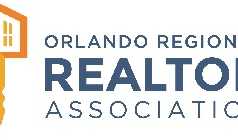After nearly two decades of smooth sailing, Sanford-based Federal Trust Bank has run into some serious head winds.
Profit has plummeted, bad loans have skyrocketed and assets have decreased for the longtime Central Florida savings and loan.
The only publicly traded bank based in Metro Orlando has also seen its stock prices fall precipitously. Federal Trust closed at $8.05 a share Tuesday, down 33 percent so far this year and close to its 52-week low of $8 a share on the American Stock Exchange.
Federal Trust was the 17th-largest bank in Central Florida in 2006, based on deposit market share. But deposits slipped nearly 3 percent to $480 million in the first quarter.
It is a dramatic departure for a savings and loan that ranked 53rd in a 2005 survey of the nation’s 100 best-performing public thrifts. It earned $4.4 million in 2005; but profit fell 23 percent to $3.4 million last year.
Federal Trust is not alone in its troubles, said John McCune, research director for SNL Financial LLC, a Charlottesville, Va.-based industry research firm. SNL conducted the Top 100 survey that ranked Federal Trust among the best-performing thrifts two years ago.
But the housing slump has especially hurt thrifts, because many invested heavily in residential development during the boom years, he said.
“The thrift industry as a whole is getting hit, but Federal Trust is being hit harder than most,” McCune said.
Bank officials said they have launched a multifaceted effort to right the ship.
An aggressive branching program has more than doubled its branch “footprint” since early 2006. Federal Trust now has nine offices in Orange, Seminole, Lake and Volusia counties.
A new senior management team has come aboard, including veteran local banker Dennis T. Ward, a former executive with SunTrust and Regions Bank.
It has implemented a bankwide training program that introduced a new sales and customer-service culture. An aggressive marketing campaign also is in the works.
Although the measures have contributed to its profit erosion, Federal Trust is confident it will result in a turnaround, said James V. Suskiewich, the thrift’s president and chairman.
“That’s our challenge. This new strategy will take time, but we believe it will bring positive changes and the market will respond,” he said. “I’ve talked to our investors and institutional people and they are plotting our plan, wishing us great success and giving us an opportunity to execute it.”
For almost a year, the bank has cited the “softer real-estate market” along with a series of other factors that have hurt its profit. Among others, there were the costs of building new branches, defending litigation related to an adversarial proxy battle last year and bringing aboard new senior executives and branch employees.
But one of the bank’s most problematic issues has been the large increase in nonperforming assets, or bad loans that are in default. Noncurrent loans jumped almost fivefold to $16.7 million in the first quarter. Overall, nonperforming assets totaled $18.8 million, an increase of 376 percent.
The bank said the default of two major real-estate-related loans accounted for much of the increase in nonperforming assets.
Suskiewich said the real-estate portfolio has stabilized, and the bank is making every effort to recover the value of the defaulted loans, which were well-secured. Federal Trust was not involved in any subprime loans or other higher risk lending, he said.
“These are the most financially challenging times for us, certainly in recent memory,” Suskiewich said. “But I find that in challenging times, there are also opportunities, and we believe we are going in the right direction.”
by Richard Burnett | Sentinel Staff Writer
Richard Burnett can be reached at 407-420-5256 or rburnett (at) orlandosentinel (dot) com.





